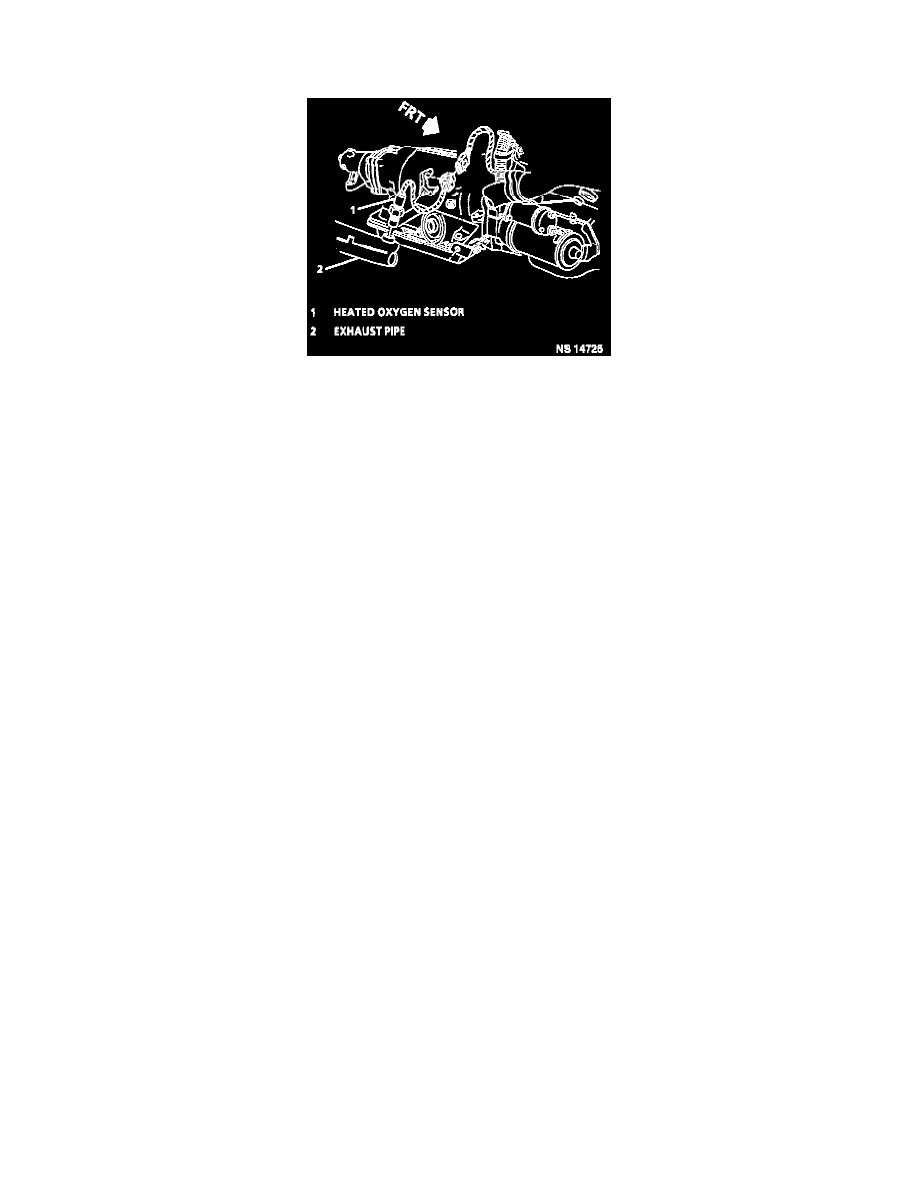K 2500 Truck 4WD V8-350 5.7L VIN K TBI (1995)

Oxygen Sensor: Service and Repair
Heated Oxygen (HO2S) Sensor Replacement
Heated Oxygen Sensor
NOTE:
The Heated Oxygen Sensor (HO2S) uses a permanently attached pigtail and connector. This pigtail should not be removed from the HO2S. Damage
or removal of the pigtail or connector could affect proper operation of the oxygen sensor.
Take care when handling the HO2S. The in-line electrical connector and louvered end must be kept free of grease, dirt, or other contaminants. Also,
avoid using cleaning solvents of any type. Do not drop or roughly handle the HO2S.
If the HO2S pigtail wiring, connector or terminal is damaged, the entire oxygen sensor assembly must be replaced. Do not attempt to repair the wiring,
connector or terminals. In order for the sensor to function properly, it must have provided to it a clean air reference.
This clean air reference is obtained by way of the oxygen sensor signal and heater wires. Any attempt to repair the wires, connectors or terminals
could result in the obstruction of the air reference and degraded oxygen sensor performance.
The following guidelines should be used when servicing the heated oxygen sensor:
^
Do not apply contact cleaner or other materials to the sensor or vehicle harness connectors. These materials may get into the sensor causing poor
performance. Also, the sensor pigtail and harness wires must not be damaged in such a way that the wires inside are exposed. This could provide a
path for foreign materials to enter the sensor and cause performance problems.
^
Neither the sensor or vehicle lead wires should be bent sharply or kinked. Sharp bends, kinks, etc., could block the reference air path through the
lead wire.
^
Do not remove or defeat the oxygen sensor ground wire (where applicable). Vehicles that utilize the ground wired sensor may rely on this ground
as the only ground contact to the sensor. Removal of the ground wire will also cause poor engine performance.
^
To prevent damage due to water intrusion, be sure that the peripheral seal remains intact on the vehicle harness connector.
The engine harness may be repaired using Packard's Crimp and Splice Seals Terminal Repair Kit J 38125-A. Under no circumstances should repairs be
soldered since this could result in the air reference being obstructed.
REMOVE OR DISCONNECT
IMPORTANT: The H02S may be difficult to remove, when engine temperature is below 48°C (120°F). Excessive force may damage threads in
exhaust manifold or exhaust pipe.
-
Negative battery cable.
-
Electrical connector releasing locking tab.
-
Carefully back out oxygen sensor.
INSTALL OR CONNECT:
IMPORTANT:
^
A special anti-seize compound is used on the H02S threads. The compound consists of liquid graphite and glass beads. The graphite will tend
to burn away, but the glass beads will remain, making the sensor easier to remove.
^
New, or service replacement sensors will already have the compound applied to the threads. If a sensor is removed from an engine, and if for
any reason it is to be reinstalled, the threads must have anti-seize compound applied before reinstallation.
